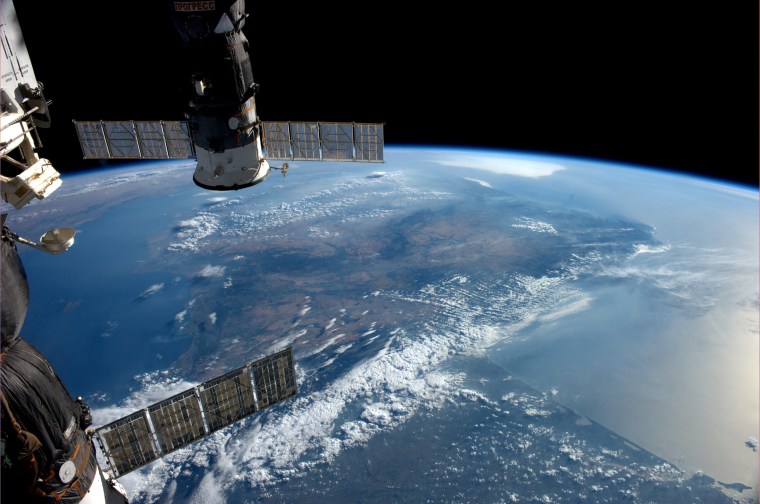The International Space Station will soon have a new function: animal tracker. Next summer, an experiment called ICARUS (International Cooperation for Animal Research Using Space) will be installed on the ISS to track the migration of a range of species on Earth.
Scientists have been tagging and tracking animals with radio transmitters and receivers for decades, but most methods in use are labor intensive, only practical for small numbers of animals, and expensive. Now, researchers at the Max Planck Institute for Ornithology in Germany have devised a way to solve at least two of these problems. They have designed a small radio tag with GPS and its own solar array that can be attached to individual animals that weight as little as a quarter of a pound. These tags will not only record the location of the animal, but also how fast it moves, the temperature of its environment, and even the light it received (sunlight or artificial). Additionally, the tags will be able to transmit their data and not just passively store it.
The placement of ICARUS aboard the ISS will allow for near constant monitoring of thousands of species in real-time. This project has the potential to transform our understanding of migratory species and provide information for how and where to develop infrastructure that doesn't impinge on their travel. There's even speculation that data from ICARUS could reveal how virus and pathogens move across our planet and provide an early detection system for when particular ecosystems are in danger.
For more about this fascinating experiment, check out this article by Ed Yong and hop over to the ICARUS homepage.
Here's some more geek from the week:
- Alaska's Katmai National Park & Preserve has a live bearcam. [VIDEO]
- Corals are so much more active than they appear to be, they just operate on a different time scale. [VIDEO]
- What do telescopes and cephalopods have in common? They both can see via chromatic aberration.
- The National Ocean and Atmospheric Administration sent a hydrophone to the Mariana Trench. Listen to what it heard.
- Time perception may have an influence on functions linked to hormone levels, such as blood sugar regulation.
- Knights may look like they were loaded down with armor, but they were more agile than you think. [VIDEO]
- If you heard the loudest sound on Earth up close, it would have killed you.
- Google is now training it's self-driving cars to recognize cyclists' hand signals.
- Astronomers have come up with a astrobiology version of the Drake equation to predict the probability of life emerging.
Keep on geeking!
@Summer_Ash, In-house Astrophysicist
